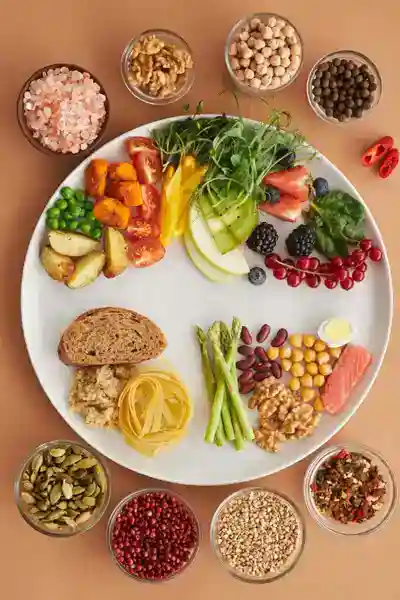Discover Intermittent Fasting: Benefits & How to Start

Tired of Dieting? Intermittent Fasting Might Be Your New BFF
Youre tired of the daily grind of calorie counts?. Intermittent fasting might be the solution youve been searching for. This popular weight loss method involves cycling between periods of eating and fasting rather than restricting specific foods. Its an approach to your meals that allows you to indulge on some days while giving your body a break on other days. There are different variations, such as alternate-day fasting, the 5:2 method (fasting two days a week), and daily time-restricted feeding.
Some studies suggest that intermittent fasting can lead to weight loss and even reduce inflammation in the body. Its like hitting the reset button in your metabolism. But the potential benefits go beyond shedding pounds. Scientists believe that fasting puts your cells through a mild stress similar to a mini workout. This stress response they theorize strengthens your cells ability to handle future challenges potentially boosting your overall health and even warding off diseases.

Want to Dive into Intermittent Fasting? Heres Your Starter Guide
When youre not fasting think of it like a day to treat yourself. You can enjoy most foods but remember that a balanced diet with plenty of fruit vegetables and lean proteins is key for weight loss and good health. Think of fasting days as a time to reset and give your body a break. The every other day diet for example limits you to 500 calories on fasting days. Nuts are a popular choice because they provide protein and keep you feeling full.
Another popular method is the 5:2 Fast Diet, where you eat normally for five days and restrict calories to 500 (for women) or 600 (for men) for two non-consecutive days. Thats about a quarter of your usual daily intake. You can decide to eat those calories all at once or spread them out in small meals throughout the day.

Can You Really Lose Weight By Eating Every Other Day?
The every other day diet as the name suggests involves alternating between days of fasting and days of eating. Its not as simple as skipping meals though. You're aiming to drastically reduce your calorie intake on fasting days, relying mostly on water, black coffee, and unsweetened tea to keep you going. Maintaining this level of restriction a few days a week can be tough.
You need a well-planned balanced meal plan for your feast days. But these days arent free-for-alls. Moderation is key, with occasional treats being the exception rather than the rule. You're setting yourself up for success by fueling your body on the days youre eating. As long as you focus on healthy choices the good news is that you can continue with your regular cooking and shopping habits. Packaged or pre-made meals are however off-limits. Social gatherings might be a little trickier. The every other day diet doesnt explicitly forbid in-person meetings but youll need to be mindful of food temptations.
Exercise is another consideration. You can still work out but you might find yourself with less energy on fasting days. Actually research by the creators of the every other day diet found that people doing cardiovascular exercise like biking while fasting were still able to maintain muscle mass.

Is Intermittent Fasting Right for You?
Intermittent fasting is a flexible eating pattern where you cycle between periods of eating and fasting. The beauty of intermittent fasting is that you get to decide when you eat. This means you can easily tailor it to your lifestyle and dietary preferences. No matter whether youre a vegetarian vegan low-carb or focused on reducing fat intake you can make intermittent fasting work for you. However its important to remember that making big changes to your eating habits can sometimes come with side effects. Some people experience fatigue weakness or headaches when they first start intermittent fasting. Don't worry these are usually temporary and subside as your body adjusts.

Is Intermittent Fasting Right For Your Wallet and Waistline?
This particular fasting method wont break the bank. You might even see your grocery bill shrink since youll be eating less for 2 to 4 days each week. Finding support for your intermittent fasting journey is easy. There are tons of books and websites dedicated to different variations of this approach. You will have plenty of resources to guide you once you figure out which fasting style resonates with you.

Unveiling the 500600 Calorie Fasting Secret: Is It Right for You?
Most intermittent fasting diets suggest reducing your calorie intake to 500-600 calories on fasting days. Why? Because for many people this approach is both medically safer and more manageable than completely abstaining from food. Remember to stay hydrated on fasting days by drinking plenty of fluids to prevent dehydration. On your non-fast days focus on nourishing your body with a healthy and balanced diet. When practiced safely and effectively this combination of strategies can be a powerful tool for weight loss and overall well-being.

Does Intermittent Fasting Really Lead to Lasting Weight Loss?
Research into intermittent fasting diets shows promising results for short-term weight loss. Studies indicate that people who follow these diets for several weeks often experience a reduction in weight. However the big question remains does the weight loss stick around in the long run?. Unfortunately we do not have a definitive answer to that yet. More research is needed to determine the long-term effects of intermittent fasting on weight management.

Can Intermittent Fasting Really Help My Health?
Intermittent fasting has shown promise in managing certain health conditions. Some studies suggest it may help reduce asthma symptoms. Theres also evidence although not conclusive that it could improve how the body uses insulin. However its crucial to remember that intermittent fasting isnt a one-size-fits-all solution. If you have any underlying health concerns its essential to talk to your doctor before giving it a try. This diet is not suitable for everyone including children pregnant women individuals with eating disorders and some people with diabetes. Don't forget to prioritize your health and safety.

Is Intermittent Fasting the Weight Loss Secret Youve Been Waiting For?
Intermittent fasting is an eating pattern that cycles between periods of eating and voluntary fasting on a regular schedule. There are several approaches to intermittent fasting but one popular method involves restricting your calorie intake to 500-600 calories on fasting days. This approach might be a viable option for some individuals looking to manage their weight. However its crucial to remember that intermittent fasting isnt a one-size-fits-all solution. It is essential to consult with a healthcare professional before making any significant dietary changes especially if you have any underlying health conditions.

Is Intermittent Fasting the Key to Weight Loss Success?
Lets talk about intermittent fasting as a popular weight loss strategy. What is essentially intermittent fasting isnt about what you eat but when you eat. Instead of sticking to three meals a day, you cycle between periods of eating and voluntary fasting on a regular schedule. Think of it like giving your body a break.
During fasting periods your metabolism shifts to burning stored fat for energy instead of relying on the food you just consumed. Many people find success with intermittent fasting but it is not a one-size-fits all solution. There are different fasting schedules to explore, like the 16/8 method (fasting for 16 hours and eating within an 8-hour window) or the 5:2 method (eating normally for five days and restricting calories for two non-consecutive days). The best intermittent fasting schedule for you depends on your lifestyle and preferences.